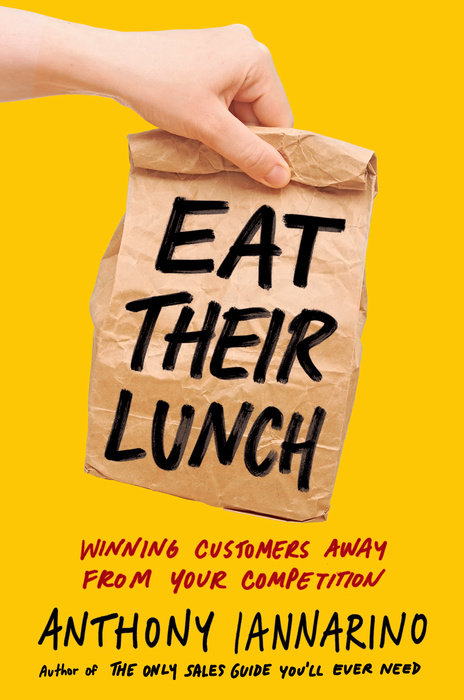The Gist:
- Sales roles are unique because individuals directly compete for a client’s business.
- In this contest, an individual’s performance has the largest influence on the result.
- When your competitor is trying to displace you, you need to continually improve your ability to displace them and protect your clients from being poached.
Your company’s accounting department is not competing with your competitor’s accounting department: the bean counters in your company can create an accurate financial statement, and so can your competitor’s bookkeepers. While the whole of your company is competing in the market, there is only one role that directly wins or loses the contest of acquiring new clients and new opportunities: yours.
In B2B sales, competition can—and does—impact your overall sales results, particularly when the sales organization and salespeople don’t recognize the nature of that competition. In a contest with multiple participants, only of whom will win the client’s business, how you compete is a key variable in your success.


The Individual as a Variable
Much of the time, a salesperson walks through their client’s door alone, signs their name in the guest book (surreptitiously noting who else has visited the client in the past couple weeks), grabs a guest pass, and waits in the lobby for their contact to escort them to their office or the conference room.
With no onsite support from their own company, the salesperson must rely completely on their ability to create enough value for the client to secure a second meeting, all the while working towards creating a new opportunity they can pursue and win. Some of those salespeople go back through the lobby and out the door without a next step, having been eliminated before the tournament even begins. They have typically failed to create enough value to even be considered as the client’s new partner in some category.
Knowing that they are competing in a game with relatively high stakes, why would so few salespeople spend so little time improving their own ability to compete effectively, providing them with a competitive advantage that is enough to create a mismatch? I believe they are unable or unwilling to recognize that the sales conversation is the only tool they have to create and win new business. In turn, this causes sales organizations to misunderstand the competition in the most profound way by providing their target clients with a salesperson who is ill-prepared and under-developed when it comes to creating the level of value that would cause a client to prefer them.


Displacement as a Variable
Your accounting department isn’t trying to take your major competitor’s accounting spreadsheets away from them. Your salesforce, on the other hand, is hellbent on taking your competitor’s clients away from them. When salespeople complain about the cutthroat nature of that statement, or even that competition breeds bad behavior, it’s because they don’t recognize that their competitor is doing everything in their power to take their clients away from them.
The majority of B2B and a large portion of B2C salespeople are playing a zero-sum game, in which only person wins the client’s business. Winning the client’s business requires that a salesperson displaces their competition, removing them from their position and occupying the space that once belonged to them.
Many sales organizations, including sales leaders, sales managers, and salespeople, don’t recognize the impact of displacements. They underestimate displacement as a strategy by believing that leads are better than targets, looking for new won deals without regard for the small contribution it makes towards their goals. These organizations aren’t willing to play the long game: nurturing relationships, shaping the lens through which the stakeholders view their business and, over time, positioning themselves as a future partner, one who can improve their prospective clients’ results.
You are vulnerable to being displaced when you are complacent, apathetic, and entitled, believing (for instance) that because you have worked with a client for five years, the next five years are guaranteed. The fact that you have a contract should provide you with little comfort, as every business is going to look out for number one, even if it means replacing a supplier that is no longer creating new value. All of this is as true for your competitors as it is for you.


Playing the Game
When your clients can be taken from you, you are in a competition to retain them. Every client you lose creates a debit that you have to repay with new revenue, revenue you have to go create before you can record a single dollar of growth. When winning new clients and new opportunities (two different processes, but both are critical to growth) means displacing your competitor with clients they have held for as long as you can remember, it’s important to play the game in a way that gives you the greatest opportunity to win over your rivals.
All things being equal, the better you prepare to provide the client with the best and most value-creating sales conversation, the greater your chances of winning their business. All things being unequal, however, the better you perform in the sales conversation, the greater your chances of winning. Competition is game of making things unequal. Creating a mismatch in the sales conversation is how you make the individual a positive variable in winning or losing.
Your client portfolio is your competitor’s target list. That means your target list should be made up of your competitors’ client lists, making competition a variable to success. Your results are harmed by losing your clients to your competition, whether that loss comes from being displaced or from losing a new client opportunity that you and a competitor are both competing to win. That’s why development has to be an ongoing initiative: you must continually improve your skills over time, making you more difficult to defeat in a contest measuring not who has the oldest company or the best product, but who will make the best partner in creating better results.
Do Good Work:
- What do you need to do to improve your ability to create greater value than your competition within the sales conversation?
- How frequently do you proactively displace a competitor in a client account?
- What development would help you improve your ability to create and win new clients and new opportunities at the expense of your rivals?








.jpg?width=768&height=994&name=salescall-planner-ebook-v3-1-cover%20(1).jpg)


